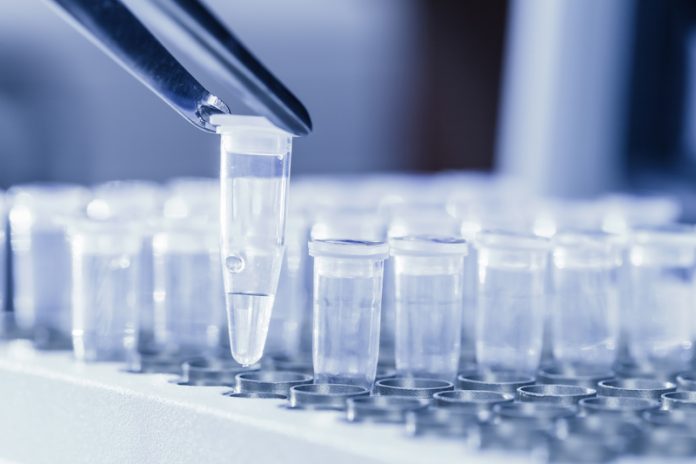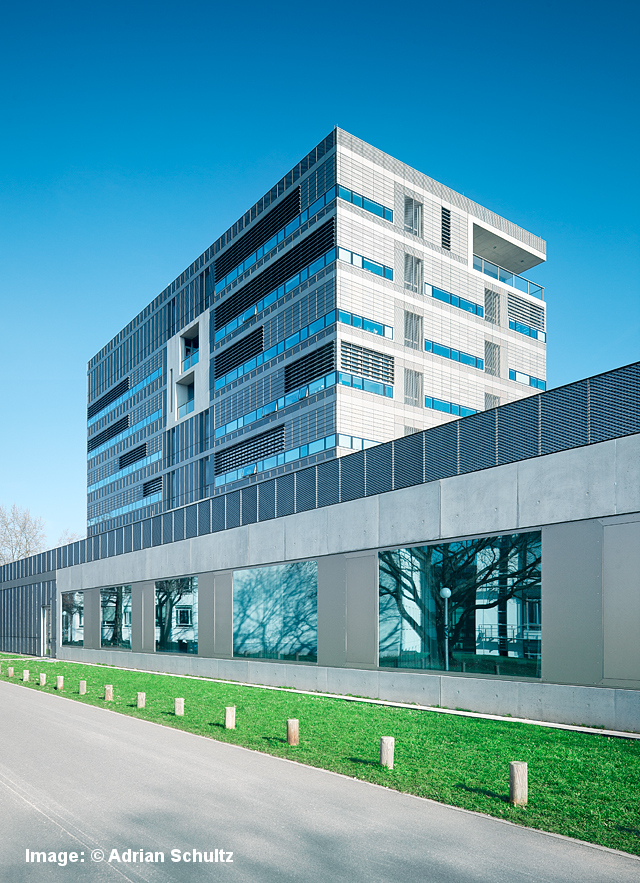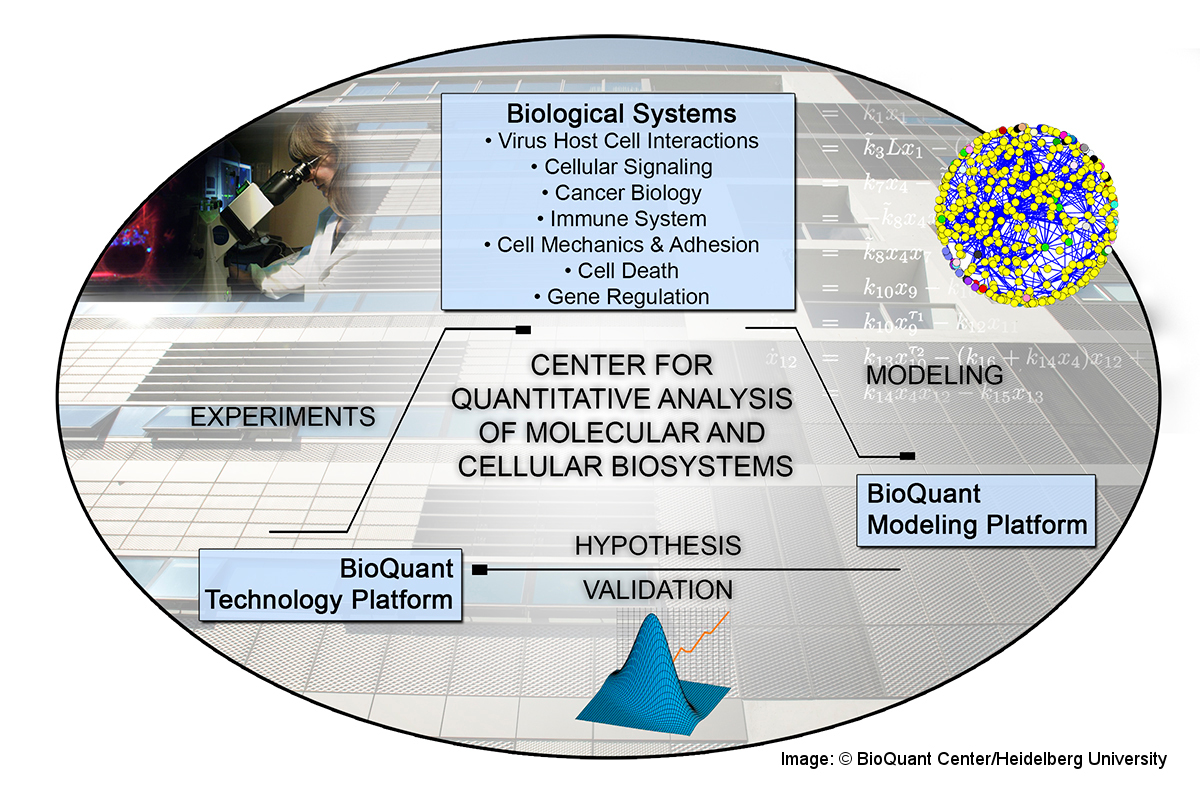Heidelberg University describes 10 years of successful systems biology research and education at their BioQuant Center
Systems biology research facilitates the discovery of yet unknown principles of complex biological systems, by connecting the experimental life sciences with mathematics, bioinformatics, engineering and computation. Quantitative experimental data are translated into mathematical models in order to simulate the respective biological processes in silico. The approach aims to achieve a holistic picture of biological systems and will eventually become indispensable for biomedical research and bioengineering in the future.
In spring 2007, the BioQuant Center was established as an interdisciplinary research centre at Heidelberg University, solely dedicated to research and training in systems biology. At that time, BioQuant was the first centre of its kind for systems biology in Germany.
In the meantime, BioQuant has evolved into an internationally visible systems biology hub on the Heidelberg research campus and represents a successful platform for the development and constant refinement of mathematical models of complex biological systems, as well as for the swift validation of scientific hypotheses via experimental data.
Describing complex biological systems
BioQuant’s remarkable architecture ideally promotes scientific communication and interdisciplinary research at the interface between mathematics, experimental life sciences, and technology development. Currently, 30 theoretical and experimental research groups are affiliated with the Center. Among them are many international renowned scientists from Heidelberg University and the German Cancer Research Center, who are aiming for the quantitative and comprehensive description of complex biological systems.
Since its inauguration in 2007, BioQuant has been successfully involved in several local, federal and European funding programmes in systems biology and systems medicine (e.g. FORSYS, e:Bio, e:Med, Virtual Liver, MedSys, SysTec, SysMo, etc., as well as several EU FP7 integrated projects). Principal investigators at BioQuant are highly acknowledged by international evaluation panels as coordinators of these research consortia on systems biology.
In addition, the excellence cluster CellNetworks, funded by the German Excellence Initiative, is affiliated with the centre and has tremendously supported BioQuant’s interdisciplinary research activities since 2007.
Especially noteworthy is the Center for Modeling and Simulation in the Biosciences (BioMS), which focuses particularly on the support and training of young investigators in systems biology. With support from the state of Baden-Württemberg and the Klaus Tschira Foundation, Heidelberg University together with several local non-university research partners pioneered the setting up of the first local systems biology initiative in Germany in the year 2004. With the inauguration of BioQuant in 2007, BioMS has become one of the research programmes at the centre.
Systems biology research needs large data sets
Over time, BioQuant has created an internationally visible research community in the field of systems biology, studying various cellular processes, such as gene regulation and epigenetics, signal transduction, cell architecture, virus host cell interactions, immunity, cancer biology, and cell adhesion and mechanics.
Systems biology requires large and complex data sets of biological processes, preferably resolved in space and time. Here, BioQuant hosts advanced imaging technologies together with extensive IT capacity for the analysis, processing, and management of large-scale data sets.
We have established a number of technology platforms for systematic functional and quantitative live cell imaging, as well as genome-wide screening approaches that are rarely found elsewhere.
The imaging systems range from high and ultrahigh resolution microscopy (dSTORM, STED, light shed microscopy among others) to cryo-electron microscopy, which combines the latest cryo molecular images with physical phase plates. Furthermore, the NIKON Imaging Center and the Hamamatsu TIGA (Tissue Imaging and Analysis) Center are both integral parts of BioQuant.
Unique opportunities in research and education
Interdisciplinary training is essential for successful systems biology research. In the context of the BioQuant Center, a highly interdisciplinary major curriculum for systems biology has been established as part of the international master’s programme in Molecular Biosciences at Heidelberg University. It covers fundamental topics in bioinformatics, computational analysis, network reconstruction and dynamic pathway analysis, as well as multi-scale modelling.
Since 2008, BioQuant undergraduate student teams have successfully participated in the international iGEM competition for synthetic biology at MIT (e.g. grand prize winner in 2013 and 2014). Most recently, the research training group “Mathematical Modelling for Quantitative Biosciences” has been launched at BioQuant, which offers a structured curriculum in systems biology at the PhD level.
For 10 years the BioQuant Center has offered unique opportunities in systems biology research and education. It is committed to continue its successful programme in order to advance systems biology approaches to cellular processes in the context of tissue and heterogeneous cell populations.
Dr Angela Mauer-Oberthür
Ruprecht-Karls Universität
Tel: +49 (0)6221 5451204
angela.mauer@bioquant.uni-heidelberg.de
Please note: this is a commercial profile













